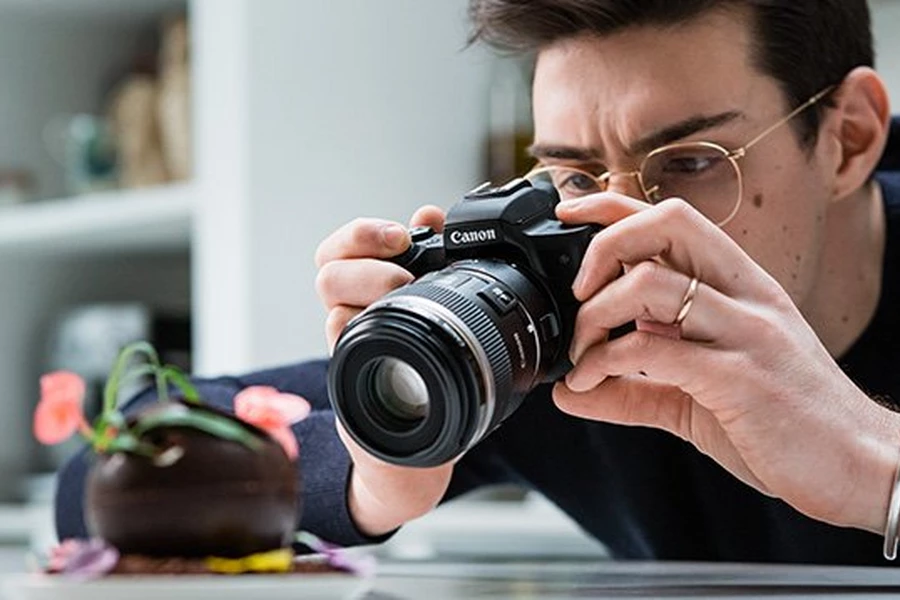When it comes to lenses for portrait photography, you will need to consider perspective, depth of field, and bokeh. When you’re considering which lens to buy, be sure to test several options to make sure they fit your shooting style. You may want to try a Canon 50mm f/1.2 lens before making your final decision. But which one is the best? Read on to discover more about these four lenses and how they can help your photography.
Canon 50mm f/1.2 lens
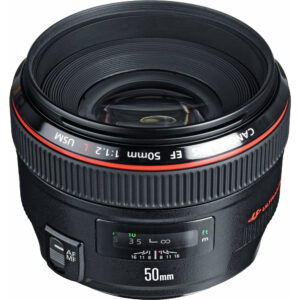
The 50mm f/1.2 lens is an excellent choice for portrait photography. You can create an intentionally out of focus background. This can be achieved with f/1.8, f/1.4, or f/1.2. This lens has a simpler design than a zoom lens, making it easier to achieve high-quality optics. If you plan on using this lens for portrait photography, make sure you know its limitations.
The lens is quite heavy and a bit larger than some other 50mm primes. The advantage of using this lens is that it is weather-sealed and is ergonomically designed. However, some users find it a little slow when it comes to autofocus. This is common in other lenses. Nevertheless, the bokeh, contrast, and colors are exceptional. The lens feels fantastic to use, which is always a plus.
The 50mm f/1.2 lens has a high refraction glass molded aspherical element that helps minimize spherical aberration and provide the best image quality when the lens is used wide open. Full frame digital camera owners will enjoy this lens’ 50mm focal length, which is a popular choice for waist-up portraits, wedding photos, and more. It produces a shallow depth of field and allows the photographer to use faster shutter speeds to avoid blurring due to movement or background noise.
Technical details:
- 50 mm lens with a maximum aperture of F/1.2
- Canon EF lens system
- Minimum focus range: 45 cm
- Automatic and manual focus adjustment
- Filter size: 72 mm
Sony 55mm f/1.8 lens
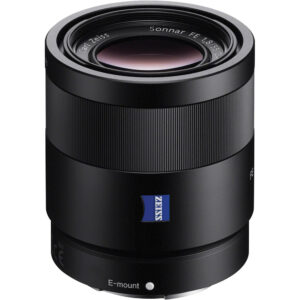
There are a few reasons why you would want to consider a Sony 55mm f/1.8 lens for your portrait photography. For one, it is the sharpest lens in its useful focal length. Also, this lens is ideal for portrait photographers who want to capture the best part of their subject’s eyes. Another advantage of this lens is that it converts its field of view to 85mm on APS-C cameras. It also has a wonderful out of focus area, which is always a plus in a portrait.
You don’t need to go very far to capture a beautiful portrait. If you’re shooting in a cafe, there are many interesting corners you can take advantage of. And a smaller lens will be less obtrusive and focus on your subject. A large lens can be embarrassing. That’s why many photographers opt for a smaller lens. And because this lens has a minimum aperture of f1.4, you can still get great background blur.
Technical details:
- 55 mm, F1.8, 35 mm full-frame E-mount prime lens with a large 9 blade aperture
- Crafted with Carl Zeiss Sonnar T* optics
- Dust and water-resistant design
- Minimum focus distance : 0.5m (1.64ft), Focal Length (mm) : 55 mm
Nikon 85mm f/1.8 lens
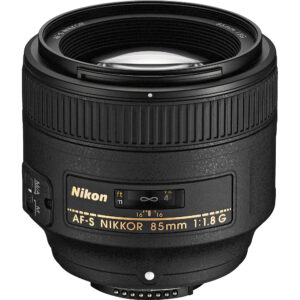
If you want to shoot great portrait photographs, the Nikon 85mm f/1.8 lens will be your best choice. This lens is characterised by its spherical optical design and special glass types that guarantee low to no chromatic aberration and micro-contrast. The lens also has an antireflective coating to ensure sharp images. This lens is an ideal choice for those who want to boost the level of their portfolio or social feed.
This lens has many advantages, starting with its wide aperture. It provides a shallow depth of field that will draw the viewer’s attention to your subject. It is compatible with full-frame and APS-C cameras, although the angle of view will be smaller. If you are going to shoot portraits with your 85mm f/1.8 lens, use a tripod or monopod to minimise camera shake. One major drawback to this lens is that it has a fixed focal length, so you won’t be able to zoom in and capture critical details.
Technical details:
- Nikkor Z: designed around the wide Nikon Z mount, This lens can capture more light across the entire frame.
- S-line: next-dimension optical design. Anti-reflective Nano crystal coat. Smooth, silent multi-focusing system.
- Tough build: every movable part of the lens barrel is Sealed to protect from dust and water droplets
- Sharp detail: exceptional edge-to-edge performance. Minimum focus distance of just 0.80 m
- Customisable control ring: can be used for manual focusing (default), aperture control, or exposure compensation.
Fujifilm 56mm f/1.2 lens
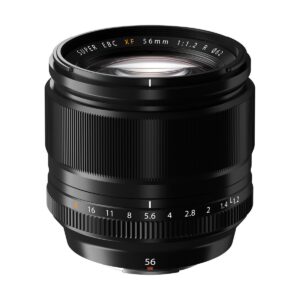
If you want to take sharp pictures of people, the Fujifilm XF 56mm f/1.2 lens is an excellent choice. This lens’s optical performance is unparalleled, and the design and build quality are excellent. Despite the XF 56mm’s weight and size, it’s very easy to grip and use, and the metal barrel makes it sturdy. Additionally, the lens’ aperture ring allows you to adjust the aperture in thirds of a stop, which is convenient to have when shooting close-ups of people.
The XF 56mm f/1.2 lens offers excellent bokeh and low-light performance. Its wide aperture of f/1.2 provides shallow depth of field. It also provides great bokeh and makes portrait photography a breeze. Although the XF 50-140mm F/2.8 WR and XF 60mm f/2.4 Macro are the best lenses for portrait photography, the XF 56mm carries the same advantages.
Technical details:
- The Fuji 56mm f1.2 APD XF is the world’s first fast-aperture autofocus lens with an apodisation filter
- The maximum f/1.2 aperture delivers brilliant levels of sharpness, while the apodisation filter ensures the out of focus areas are smooth with a unique bokeh effect.
- This combined with Fuji’s HT-EBC coating and advanced optical construction delivers the best image resolution possible and produces portraits with a three-dimensional feel
- As with other Fuji XF lenses, the 56mm lens offers an all-metal barrel construction and an aperture control ring
- Genuine Fuji Product

